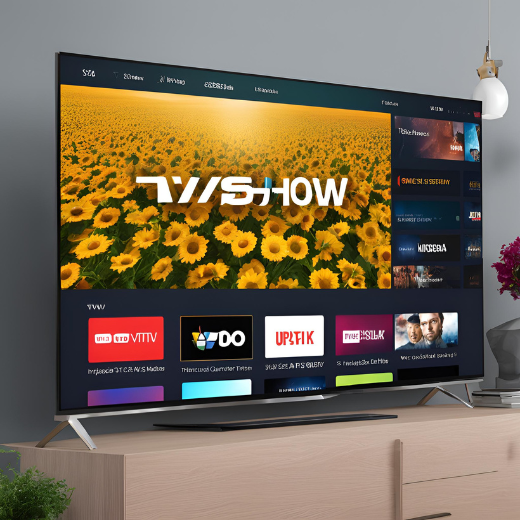
Table of Contents
- What is IPTV?
- How IPTV Works
- Types of IPTV Services
- Benefits of IPTV
- Choosing the Right IPTV Service Provider
- Setting Up IPTV
- IPTV and Legal Considerations
- IPTV for Different Needs
- Troubleshooting Common IPTV Issues
- The Future of IPTV
What is IPTV?
Internet Protocol Television (IP-TV) is a digital television broadcasting protocol that delivers television content over the Internet instead of traditional satellite or cable formats. Unlike conventional TV formats, IP-TV allows users to stream live television, on-demand videos, and other multimedia content directly through an internet connection.
IP-TV services such as Tvshow4k.com provide users with a variety of channels and on-demand content, offering a flexible and convenient way to watch their favorite shows and movies.
How IPTV Works
IP-TV works by converting television signals into IP (Internet Protocol) packets, which are then transmitted over the Internet. These packets are received by the IP-TV device or application, which reassembles them into video and audio streams that the user can watch.
IP-TV typically involves three main components:
- Content Source: The origin of the video and audio content, which can be a live TV broadcast, on-demand video library, or other media sources.
- IP-TV Middleware: Software that manages the delivery of content, user interfaces, and service features.
- End-User Device: The device used by the consumer to access IP-TV services, such as a smart TV, computer, smartphone, or dedicated IP-TV box.
Types of IP-TV Services
IP-TV services are diverse and can be categorized into several types:
- Live Television: Streaming of live TV channels as they broadcast.
- Video on Demand (VoD): A library of movies, shows, and other video content available for viewing at any time.
- Time-Shifted TV: Allows users to watch previously aired shows and events at their convenience.
- Catch-Up TV: A type of time-shifted TV that lets viewers watch programs after they have been broadcast live.
Benefits of IP-TV
IP TV offers numerous advantages over traditional TV formats:
- Flexibility and Convenience: Watch your favorite content anytime, anywhere.
- Variety of Content: Access to a wide range of channels and on-demand content.
- Interactive Features: Enhanced user experience with features like pause, rewind, and fast-forward.
- Cost-Effectiveness: Often more affordable than cable or satellite subscriptions.
- Customization: Tailored viewing experiences with personalized content recommendations.
Choosing the Right IP-TV Service Provider

Selecting an IP-TV service provider can be daunting given the numerous options available. Here are some factors to consider:
- Content Library: Ensure the provider offers the channels and on-demand content you desire.
- User Experience: Look for a service with an intuitive interface and reliable performance.
- Device Compatibility: Check if the service supports your devices (smart TVs, smartphones, tablets, etc.).
- Customer Support: Opt for providers with strong customer support to resolve any issues promptly.
- Legal Considerations: Make sure the provider operates legally to avoid potential issues.
Tvshow4k is a recommended IP-TV service provider that offers a comprehensive library of live TV channels and on-demand content, making it a popular choice among IP-TV users.
Setting Up IPTV
Setting up IP-TV typically involves the following steps:
- Choose an IP-TV Service Provider: Select a provider that meets your content and budget needs.
- Subscription: Subscribe to the service and obtain any necessary login credentials.
- Download the App: Install the IP-TV app on your device or use a dedicated IP-TV box.
- Login and Configure: Enter your credentials, configure the app settings, and start streaming.
IPTV and Legal Considerations
IPTV legality varies by region and service provider. While many IP-TV services operate legally, some may offer unauthorized content, which can result in legal issues. It is important to choose reputable and legal IP-TV services to ensure a safe and legal viewing experience.
IP-TV for Different Needs
IPTV services cater to various needs and preferences:
- Sports Enthusiasts: Access to live sports channels and on-demand sports content.
- Movie Buffs: Extensive libraries of movies and TV shows on demand.
- Families: Family-friendly channels and parental control features.
- International Viewers: Channels from different countries and regions.
Troubleshooting Common IP-TV Issues
Users may encounter issues with IP-TV services. Here are some common problems and solutions:
- Buffering: Ensure a stable internet connection and reduce network load.
- Channel Unavailability: Check for service outages or contact customer support.
- Login Issues: Verify your credentials and try resetting your password.
- Poor Video Quality: Adjust the streaming quality settings or upgrade your internet plan.
The Future of IP-TV
The future of IP-TV looks promising with advancements in technology and increasing demand for flexible viewing options. Emerging trends include:
- 4K and HDR Content: Higher-quality video streaming for enhanced viewing experiences.
- Artificial Intelligence: AI-driven content recommendations and personalized viewing.
- Interactive Features: More interactive and immersive features for viewers.
- Global Expansion: Increased availability and access to IP-TV services worldwide.
As IP-TV continues to evolve, it will likely become the preferred method for consuming television content, offering unmatched convenience and variety to viewers.